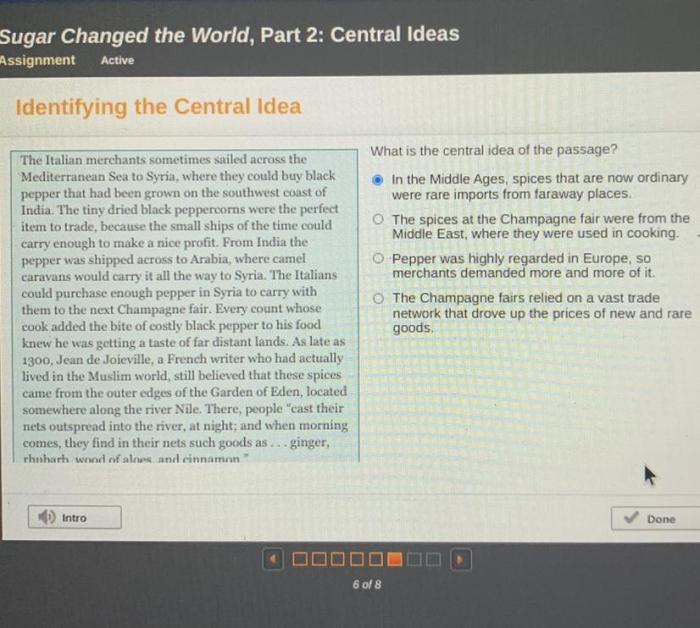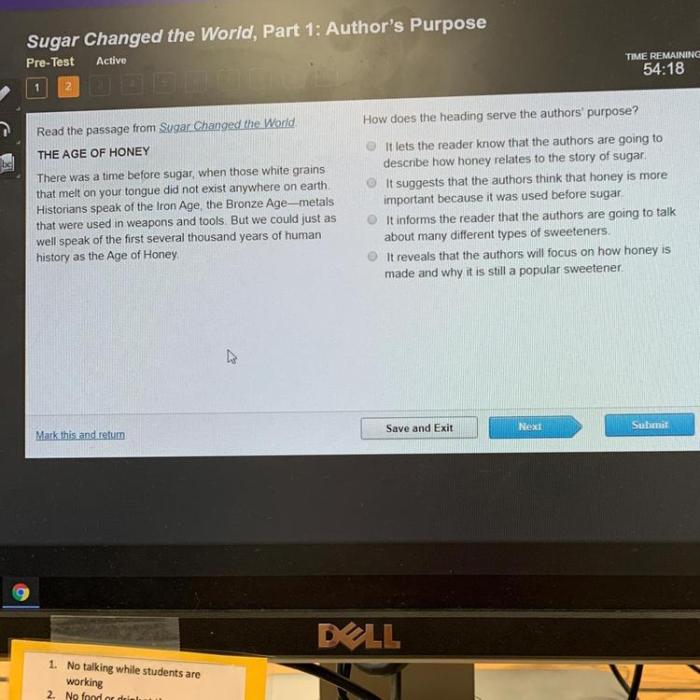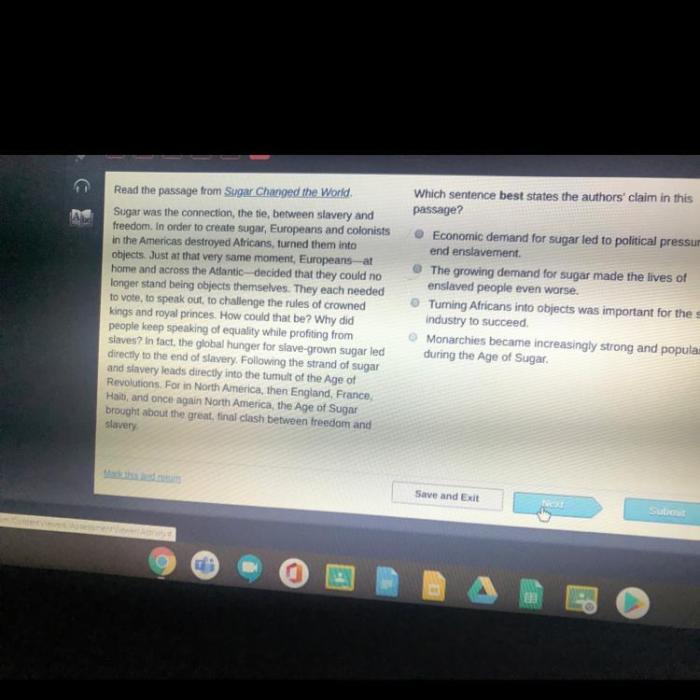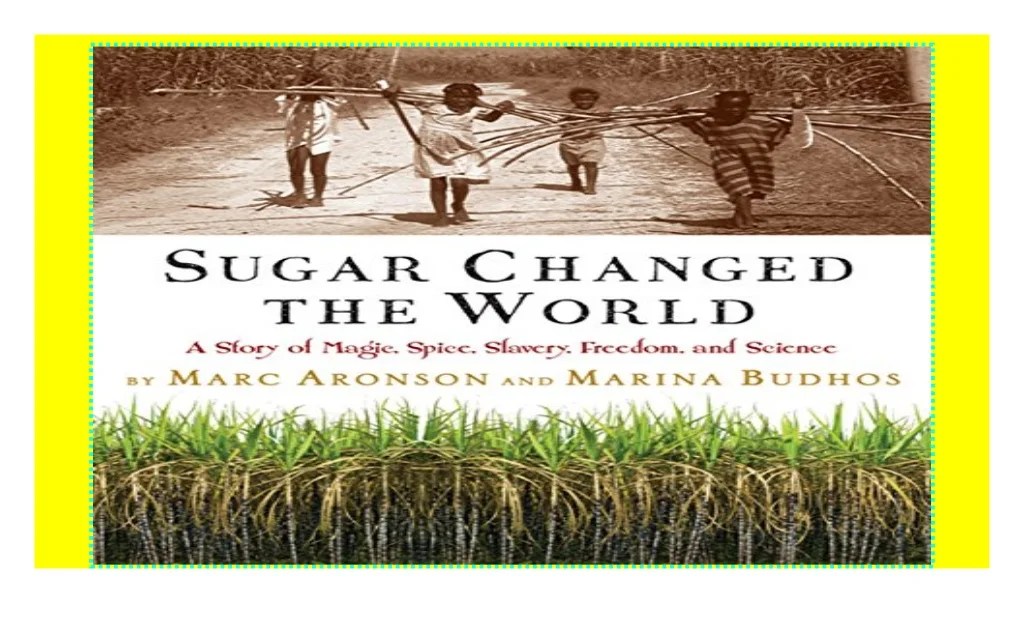Sugar changed the world part 1 author’s purpose – In this captivating exploration, we delve into the profound impact of sugar on world history. From its transformative economic role to its far-reaching social and cultural implications, sugar’s influence has shaped civilizations and continues to resonate today.
The history of sugar production and consumption provides a fascinating backdrop for understanding its transformative power. From its humble origins to its global dominance, sugar has played a pivotal role in shaping human societies.
1. Introduction

Sugar, a seemingly innocuous substance, has played a transformative role in shaping the course of world history. Its journey from a rare delicacy to a global commodity has left an indelible mark on economies, societies, cultures, and the environment.
The history of sugar production and consumption dates back to ancient times. The first known use of sugarcane for sugar extraction occurred in India around 500 BC. Over the centuries, sugar cultivation spread to other parts of Asia, the Middle East, and eventually to the Americas.
2. The Economic Impact of Sugar
The rise of sugar as a valuable commodity in global trade had profound economic consequences. Sugar became a major source of wealth and power for those who controlled its production and distribution. The demand for sugar led to the establishment of vast sugar plantations, primarily in the Caribbean and South America, which relied on slave labor to meet the insatiable demand.
The sugar trade also played a pivotal role in the rise of capitalism and colonialism. European powers, eager to secure a steady supply of sugar, established colonies in sugar-producing regions, exploiting the resources and labor of indigenous populations.
3. The Social and Cultural Impact of Sugar
Sugar has significantly influenced dietary habits and health around the world. The widespread availability of sugar led to a dramatic increase in its consumption, which had both positive and negative health implications. While sugar provided a source of quick energy and calories, excessive consumption has been linked to various health problems, including obesity, diabetes, and heart disease.
Beyond its nutritional impact, sugar has also played a significant social and cultural role in different societies. In many cultures, sugar is associated with luxury, wealth, and indulgence. It is often used in religious ceremonies, festivals, and celebrations.
4. The Environmental Impact of Sugar
Sugar production has significant environmental consequences. The cultivation of sugarcane requires large amounts of land and water, leading to deforestation and water pollution. The use of pesticides and fertilizers in sugarcane farming can also harm biodiversity and ecosystems.
Furthermore, the transportation and processing of sugar contribute to greenhouse gas emissions, adding to the global climate crisis. The sustainability of sugar production and consumption practices is a growing concern, requiring innovative solutions to mitigate its environmental impact.
5. The Political and Historical Impact of Sugar, Sugar changed the world part 1 author’s purpose
The sugar trade has shaped political and historical events throughout history. The demand for sugar fueled the transatlantic slave trade, leading to the displacement and suffering of millions of Africans.
Sugar also played a role in the abolition of slavery and the civil rights movement. The boycott of sugar from slave-producing colonies was a key tactic used by abolitionists to pressure governments to end the inhumane practice.
Common Queries: Sugar Changed The World Part 1 Author’s Purpose
What was the primary economic impact of sugar?
Sugar became a valuable commodity in global trade, contributing to the rise of capitalism and colonialism. It had significant economic and social consequences, including the development of plantations and the transatlantic slave trade.
How did sugar influence dietary habits and health?
Sugar’s widespread availability led to changes in dietary habits, contributing to increased sugar consumption and its associated health implications, such as obesity and dental problems.
What was the environmental impact of sugar production?
Sugar production has had significant environmental consequences, including deforestation, water pollution, and biodiversity loss. It has raised concerns about the sustainability of current production and consumption practices.


